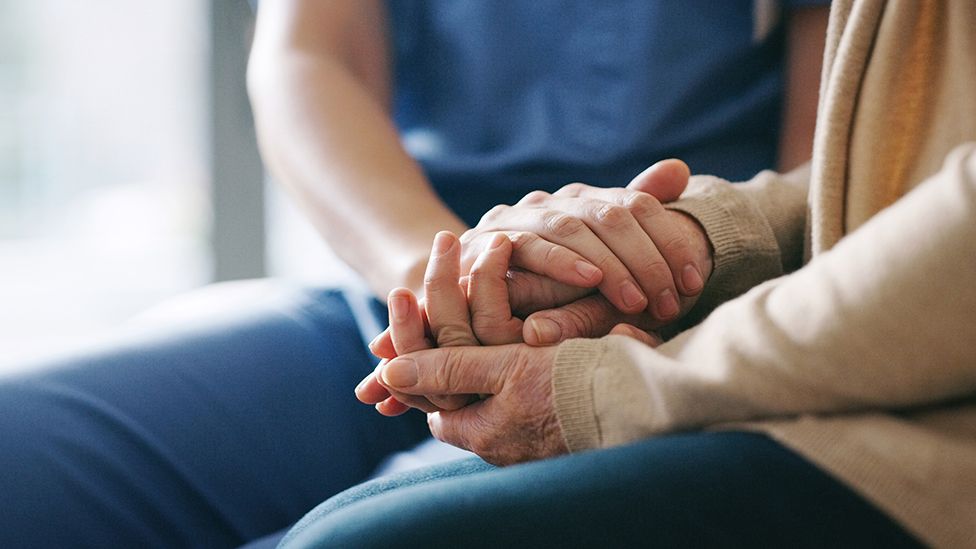This report is a welcome and comprehensive discussion of the issue of assisted suicide and euthanasia in the UK and around the world. It contains up-to-date information about areas where the practice is legal and discussions in the UK. It is even-handed and fair.
Perhaps because of its fair-minded response to a very difficult and complex discussion, the report makes no recommendations that the law change. This has predictably provoked the ire of some of the celebrity endorsers of assisted suicide.
Those celebrities might also object to the laudably honest use of the term “assisted suicide” alongside “assisted dying”. Crusading pro-assisted suicide organizations like Dignity in Dying have long argued that assisted dying is not suicide because the word suicide offends them. However, the report confusingly includes euthanasia within the terms assisted suicide and assisted dying. The two – euthanasia is where a doctor delivers a lethal injection and assisted suicide is where the patient ingests poison – are of different moral significance. But two cheers to the committee for resisting such pressures.
The report is written, not surprisingly, from a medical perspective. Its factual information is amongst the best available to date and it contains comprehensive information about assisted suicide regimes around the world.
But the most remarkable aspect of the report is to expose, without meaning to, the infiltration of a small but determined, loud and well-funded group of the British political and medical elite. One of the outrageous claims made by proponents is that there is a need for a proper debate on this issue. Pro-assisted suicide MP Sara Green complained to the committee: that The Government needs to dedicate time, as it has done in the past with regards to other issues of conscience, to debating seriously and on the basis of robust evidence, the issue of assisted dying. In doing so, it must necessarily recognise that the status quo is unsafe and is failing dying people and their families.
In this way, the report challenges existing perceptions fed to us by proponents. As it notes, those medical professionals working in settings where death occurs most often tend to oppose assisted suicide. “BMA analysis of the survey results suggested that those working in anaesthetics, emergency medicine, intensive care, and obstetrics and gynaecology were more likely to be supportive of a change in the law, whereas those more likely to be opposed to a change in the law worked in clinical oncology, general practice, geriatric medicine, and palliative care.” (53)
Inadvertently, it exposes the fact that “debate”, to Dignity in Dying and other proponents, is emotionally clubbing people over the head with terrible stories until they succumb to the terror of a bad death or to the appeals of those who are terminally ill. As Pro-assisted suicide MP Sara Green complained to the committee:
The Government needs to dedicate time, as it has done in the past with regards to other issues of conscience, to debating seriously and on the basis of robust evidence, the issue of assisted dying. In doing so, it must necessarily recognise that the status quo is unsafe and is failing dying people and their families.
That is, it must debate until it agrees with Ms Green. As for needing to dedicate time, few issues of conscience have attracted more debating time. As the report dryly notes, the issue has been debated to, errr, death. Lord Joffe’s Patient (Assisted Dying) Bill introduced in Session 2002–03 was followed by his Assisted Dying for the Terminally Ill Bill in Session 2003–04. When it lapsed it was reintroduced in the 2004–05 session. Lord Falconer introduced Assisted Dying Bills in the 2013–14, 2014–15, 2015–16, and 2019–21 sessions. Rob Marris MP’s Assisted Dying (No. 2) Bill which was introduced in the Commons in session 2015. It was defeated on division at second reading by 330 votes to 118 in a three hour debate. Lord Hayward introduced an Assisted Dying Bill in session 2016–17. In the 2021–22 session, Lord Forsyth tabled an amendment to the Health and Care Act which would have allowed assisted suicide. Baroness Meacher introduced the Assisted Dying Bill in the 2021–22 session. In case anyone missed any of these sessions, they could head to Scotland where in September 2021 Liam McArthur MSP proposed the Assisted Dying for Terminally Ill Adults (Scotland) Bill, which is still being debated.
Of course, there are mistakes and omissions. The report concludes that there is no evidence that palliative care suffers as a result of legalized assisted suicide. But this week we hear from Australia – a poster child, as the report notes, for those who support a change in the law – that in New South Wales, the most populous region of Australia, is experiencing a 30% cut in palliative care spending.
Geared as it is towards medical personnel, there are, of course, areas that are not adequately explored. It does not analyse the issues facing society about suicide. The issue of assisted suicide and euthanasia might be summed up as the question of how we should respond to suicidal wishes. Of course, that is an extremely complex issue that brings in philosophical issues to the medical arena.
However, the report might have addressed the elephant in the room – cost. As veteran campaigner for the right to die, Derek Humphry, admitted in 2000: “In the final analysis, economics, not the quest for broadened individual liberties or increased autonomy, will drive assisted suicide to the plateau of acceptable practice.” (Derek Humphry and Mary Clement, Freedom to Die (New York: St. Martin’s Press) 313). They might have included the notorious 2020 Canadian government report that showed the savings of euthanasia of between 15 and some 54 thousand dollars per patient.
However, no report will be able to cover ever aspect of such a broad and important debate. This report certainly adds to our knowledge and understanding of the issue.


